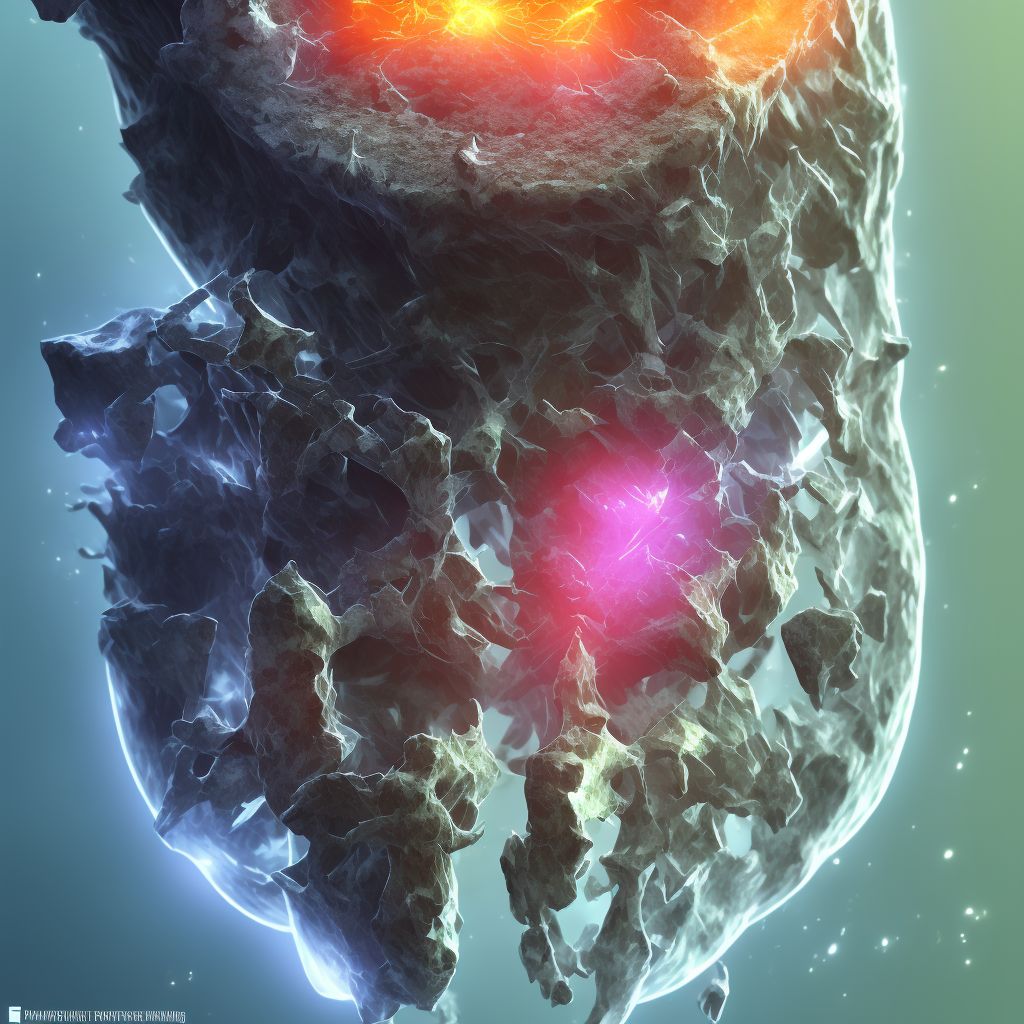
Nondisplaced comminuted fracture of shaft of left tibia, subsequent encounter for closed fracture with nonunion Save
ICD-10 code: S82.255K
Disease category: S82.255: Nondisplaced comminuted fracture of shaft of left tibia
Nondisplaced Comminuted Fracture of Shaft of Left Tibia, Subsequent Encounter for Closed Fracture with Nonunion
A nondisplaced comminuted fracture of the shaft of the left tibia refers to a type of bone injury where the tibia, or shinbone, is broken into multiple pieces, but the fragments remain aligned and in their original position. This article will provide an overview of this specific type of fracture and its subsequent encounter for closed fracture with nonunion. Here, we will discuss the condition, its causes, symptoms, and possible complications.
Caused by high-energy trauma, such as a sports injury or a motor vehicle accident, a nondisplaced comminuted fracture of the shaft of the left tibia can be a painful and debilitating condition. Common symptoms include severe pain, swelling, bruising, and difficulty bearing weight on the affected leg. It is crucial to seek medical attention promptly to prevent further damage and complications.
During the subsequent encounter for closed fracture with nonunion, the patient is likely to undergo a thorough evaluation by a healthcare professional. This evaluation may involve physical examinations, imaging tests, such as X-rays or CT scans, and a detailed medical history review to assess the progress of the nonunion.
Nonunion refers to a condition where the fractured bones fail to heal properly. It can occur due to various factors, including inadequate blood supply to the affected area, infection, excessive movement or stress on the fracture site, or poor nutrition. In some cases, surgical intervention may be required to promote bone healing and union.
- Treatment options for nonunion may include:
- Internal fixation: The use of metal plates, screws, or rods to stabilize the fractured bones and promote healing.
- Bone grafting: The transplantation of bone from another part of the body or a donor to aid in the healing process.
- Electrical stimulation: The application of low-level electrical currents to stimulate bone growth.
- External fixation: The use of an external device, such as a frame or brace, to immobilize the fracture and promote healing.
It is important to note that this article does not provide detailed information about the treatment options for a nondisplaced comminuted fracture of the shaft of the left tibia. Treatment decisions should be made in consultation with a qualified healthcare professional.
In conclusion, a nondisplaced comminuted fracture of the shaft of the left tibia can be a challenging condition to manage. Prompt medical attention and appropriate treatment are essential to ensure proper healing and minimize complications. If you suspect you may have this type of fracture, it is crucial to consult with a healthcare professional for an accurate diagnosis and appropriate treatment plan
Treatment of Nondisplaced comminuted fracture of shaft of left tibia, subsequent encounter for closed fracture with nonunion:
Treatment Options for Nondisplaced Comminuted Fracture of Shaft of Left Tibia, Subsequent Encounter for Closed Fracture with Nonunion
A nondisplaced comminuted fracture of the shaft of the left tibia can be a challenging condition that requires proper treatment to ensure proper healing and recovery. In cases where the fracture has not healed properly, a subsequent encounter for a c...
To see full information about treatment please Sign up or Log in